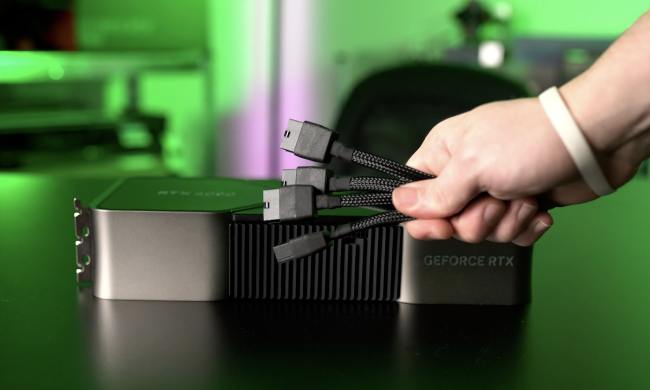NordVPN is one of the most popular and best virtual private networks (VPNs) available, while Proton VPN is a relative newcomer that launched several years after it. Both have thousands of servers worldwide and boast high-speed streaming and download capacity without sacrificing security and privacy.
It’s particularly hard to choose between these leading VPNs when the pricing is so close. I recently reviewed NordVPN and Proton VPN, so I’ll share details about pricing and renewal costs, hands-on speed tests, and customer service responsiveness.
Ultimately, I’ll share my recommendation for the best VPN to fit your budget while protecting your privacy and delivering consistently great performance.
Tiers and pricing

Starting at the free tier, Proton VPN takes the lead with a full-featured app that can connect to 136 servers in the U.S., the Netherlands, and Japan. There’s no data cap or artificial limits placed on speed. Proton VPN is among the best free VPNs with few restrictions. NordVPN doesn’t have a free version.
Both offer a 30-day money-back guarantee but no trial period. That means you have to pay for a subscription to try the full version of either VPN. Each company supports 10 devices with paid service so you can use the VPN on all your devices and share with family members.
NordVPN costs $13 per month, while Proton VPN comes in at $10 monthly. The best value comes with a longer subscription. NordVPN starts at $60 for the first year, but renews at $139.08. The equivalent monthly cost is $5 initially, but increases to $12 thereafter. A two-year subscription starts at $97 and includes three free months. That works out to $3.60 monthly, a great deal for 27 months. But watch out for the renewal cost, which skyrockets to $313.
Proton VPN has a less expensive $10 monthly plan and matches NordVPN’s $60 annual subscription. The two-year plan costs $108. Proton doesn’t charge more when you need to renew, so both monthly and renewal costs are better.
Both services have software bundles that add more features if you pay more.
Features

When I reviewed NordVPN, I was more than satisfied with its speed and reliability. I consistently enjoyed quick server connections and download speeds measuring 32% to 52% of my gigabit Ethernet connection. That’s hundreds of megabits per second worldwide.

As impressive as NordVPN’s performance was, Proton VPN nearly matched it by delivering 26% to 50% of my unprotected internet download speed. Proton VPN suffered from slow uploads, a common complaint with even the best VPNs.

While NordVPN managed up to 29 Mbps uploads, the best I got with Proton VPN was 14 Mbps. To be fair, server connections are generally optimized for downloading content, with only a bit reserved to keep the connection responsive as you search and browse.
Both feature solid VPN connections to thousands of servers in over 100 countries. To get around administrative firewallls, NordVPN has the NordLynx protocol and Proton VPN has Stealth.
Support

NordVPN has an advantage when it comes to customer service. You can search and browse the support center for help documents. If you run into a problem that you can’t figure out on your own, NordVPN offers 24/7 live chat. I tested the response time and found it to be quick and informative.
Proton VPN provides live chat support for paid subscribers, but only during business hours. Still, you can get help quickly during a 15-hour window daily. I received fast and thorough replies to my questions. If you reach out when live chat is closed, Proton’s support documents are available anytime.
Privacy and security
NordVPN prioritizes user privacy with a strict no-logs policy and no data sharing with third parties. Like all good VPNs, NordVPN uses end-to-end encryption to protect your data, as well as hides your IP address and location.
Proton VPN is open-source software with a privacy focus, a strict no-logs policy, and secure data storage practices. Proton was founded by CERN scientists in 2014 to ensure private communications and carries that mission forward with all its apps and services.
Both service get regular independent audits to check security and verify that no logs are retained. Your data should be secure and private with either VPN.
Which VPN is right for you?
As you can tell, NordVPN and Proton VPN are closely matched,with similar pricing and features. The primary difference is in pricing tiers. NordVPN offers more bundle variety, which might be appealing if you have particular needs that Proton VPN can’t meet affordably.
For some people, Proton Free might be all they need. It’s fast, free, and includes free versions of Proton VPN, Proton Mail, Proton Pass, and more.
If you need access to more servers, but for a limited time, Proton VPN’s monthly fee is less expensive than NordVPN’s. If you anticipate long-term use of a VPN, Proton VPN’s consistent pricing when you renew means you’ll continue saving when it comes time to renew your subscription.
For most people, Proton VPN is the best solution whether you use the free version or subscribe.
If neither solution seems like a good fit, there are plenty of fast and reliable VPNs to choose from. It’s also worth checking out our list of VPN deals to see if you can save some money while protecting your privacy.




